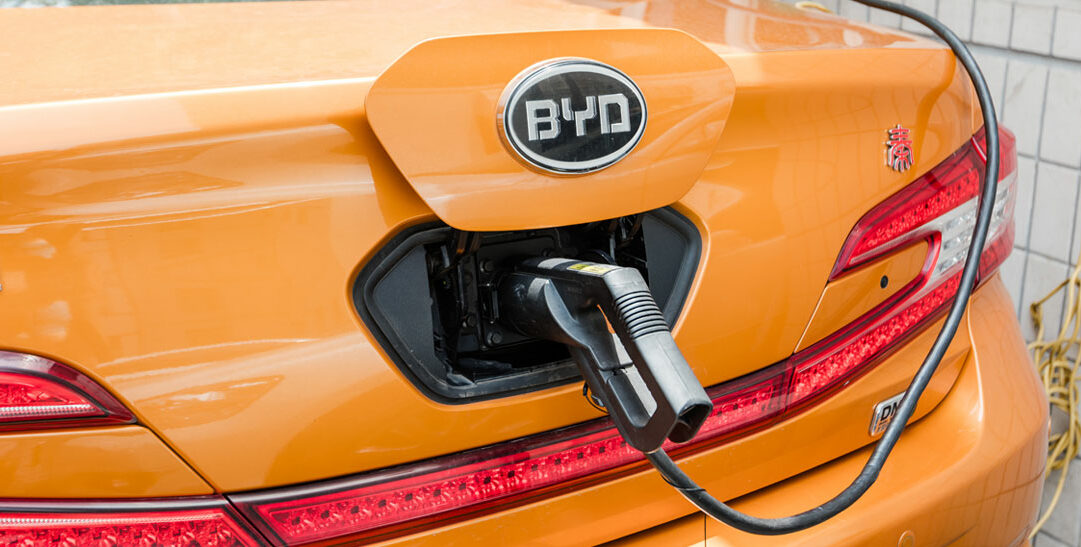Electric cars, what the EU risks with the BYD plant in Hungary

Chinese company BYD will open an electric car plant in Hungary, the first in Europe. The Commission has announced an anti-subsidy investigation, but China could dominate the European car market from within. All the details
Chinese electric vehicle company BYD announced on December 22 that it will build an automotive assembly plant in Hungary.
The news is relevant not only because the Hungarian one will be BYD's first electric car plant in the European Union, but also because it represents a concrete signal of the company's expansion plans around the world. In 2022, BYD sold 1.8 million battery-powered vehicles (both pure electric and plug-in hybrids), more than Tesla's 1.3 million (which however does not make hybrid models), but deliveries were concentrated in China .
– Read also: Will BYD overtake Tesla in electric cars?
WHAT WE KNOW ABOUT BYD'S PLANT IN HUNGARY
The European factory will be built in Szeged, in southern Hungary, and should – it is intended – allow the creation of "thousands" of local jobs and promote the exchange of technologies between China and Hungary.
Neither the size of the plant nor the extent of BYD's investment nor the construction time are known at the moment. Estimates reported by the New York Times speak of two-three years of work and a production volume of 200,000 cars per year once it becomes fully operational.
BYD already owns a plant in Hungary: it is that of Komárom , in the north-west of the country, but dedicated to the assembly of electric buses. It opened in April 2016.
THE CATL FACTORY
Also in Hungary but in Debrecen (about 220 kilometers north of Szeged) a battery factory for the electric vehicles of another large Chinese company, CATL , will be built: the structure, which will extend over an area of 220 hectares, will be located in proximity to the Mercedes-Benz, BMW, Stellantis and Volkswagen factories. The investment amounts to 7.8 billion dollars and was facilitated by the government of Viktor Orbán, politically close to Beijing.
Last October Orbán visited China, Shenzhen, where BYD is based.
Thanks to the Chinese contribution, Hungary could become the second largest producer of batteries for electric vehicles in Europe, after Germany.
THE EUROPEAN SURVEY ON CHINESE ELECTRIC CARS
In September, during her State of the Union speech, European Commission President Ursula von der Leyen announced the opening of an anti-subsidy investigation into electric vehicles from China. “Right now global markets are flooded with cheap Chinese electric cars. And their price is kept artificially low by huge state subsidies,” he explained. “This distorts our market.”
Commission data says that on average Chinese electric cars are 20 percent cheaper than European ones.
From 2035, the registration of petrol or diesel powered vehicles will be banned in the Union. The risk, therefore, is that Chinese car manufacturers – supported by the state and equipped with large economies of scale – could "conquer" the European electric mobility market, replacing local companies. Today, China's share of the total electric vehicles sold in Europe is 8 percent, but could rise to 15 percent in 2025.
China is the country that produces the most electric vehicles and the most batteries (including components) in the world . European car manufacturers, however, cannot count on a developed domestic supply chain. In short, the duties that could follow the anti-subsidy investigation will not be enough to resolve the competitiveness imbalance with Chinese competition. Also because Chinese companies could circumvent any tariffs by installing manufacturing capacity directly within European borders, as BYD is doing: the Union risks becoming the assembler of other people's electric vehicles, losing industrial relevance in a sector critical to its economy and its employment.
– Read also: Why Germany is grumbling about the EU investigation into Chinese electric cars
This is a machine translation from Italian language of a post published on Start Magazine at the URL https://www.startmag.it/smartcity/auto-elettriche-cosa-rischia-lue-con-lo-stabilimento-di-byd-in-ungheria/ on Wed, 27 Dec 2023 13:52:06 +0000.
